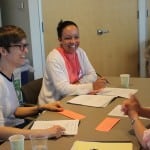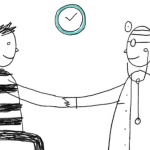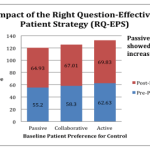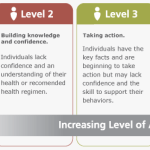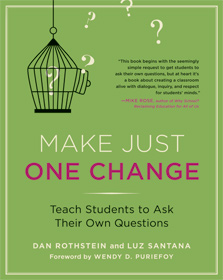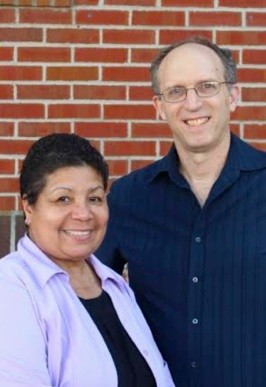This issue of inQuiring Minds focuses on problem-based learning and deeper learning as a result of asking questions. The articles below underscore how individual- and group-led questioning relates to these two themes and ultimately, leads to a myriad of positive outcomes including increased engagement and greater understanding. In this article, The Critical Thinking Community highlights […]
Who Gets to Graduate From College and Thrive?
To Ask or Not To Ask: Why Asking Questions is a Priceless Skill For College and Beyond Recently I sat in on a meeting for career counselors focused on providing support to First Generation college students and New American students. But before I say more about this meeting (it was incredibly informative and interesting) let me share […]
Questions for Design: Asking Questions as Toolset
I am using the QFT to lead up to the design challenges of which my students would do at the end of the course which involve logo design, advertising, package design, typography and publication design. Before they do the actual challenges, students will use the QFT to ask questions about designing with restraint. The purpose […]
Quotes from a Successful Healthcare Seminar
Our first healthcare seminar last week was a success! We were pleased to see an active group of 28 participants, including a mix of social workers, nurses, community health workers, healthcare profession educators, and administrators joining us from not just around Boston, but also Springfield, MA and Rhode Island. We began with an overview and […]
Teaching the QFT to Novice Teachers
As a teacher educator at Elon University, Jeff Carpenter works with students preparing to teach in seven different content areas and at multiple grade levels. The Question Formulation Technique (QFT) has been helpful in his work because it is a simple, flexible strategy that can be used at different grade levels and in any content […]
Flip the Clinic: Bringing an Education Movement into Health Care Delivery
“Flipping the classroom” is a relatively recent innovation that requires students to watch videos of lectures or lessons individually before class, then using the following class time to practice problems and critical thinking in groups. Teachers, instead of giving initial lectures, facilitate group learning and are available to answer students’ questions. The flipped classroom transforms […]
Increasing Patient Activation in NYC: The Right Question-Effective Patient Strategy (RQ-EPS)
Last week we posted about a recent article in the WSJ on patient activation. We are calling for more champions for this significant approach to help patients gain the knowledge, skills, and confidence to manage their health needs. Judith Hibbard not only developed the language and framework of patient activation, but also the validated tool […]
“Right” Questions vs. “Correct” Answers: Teaching Deeper Learning
As I explained the importance of withholding final judgment as we gather evidence and information, I saw a crooked grin creep onto his face. “I see what you’re doing,” he said, nodding as he prepared to walk out of class. When I prepare lessons for my students at Pathways in Technology Early College High School […]
Out of the Dust: A Teacher’s Reflections on Getting Students to Ask Questions in Literacy
This post is the last in a series of guest blogs by Robert Welch on how he utilizes the Question Formulation Technique (QFT) in his curriculum around the novel Out of the Dust. To see his previous blogs click here. Ultimately , students left their experiences reading and discussing Out of the Dust with a good of […]
We Need More Champions for Patient Activation
A recent article in the Wall Street Journal makes a strong case for patient activation. Patient activation refers to a patient’s knowledge, skills, and confidence to manage their own health. According to the article, “patients who are highly activated have better outcomes and incur lower costs, studies show, even though as many as 40% of […]


